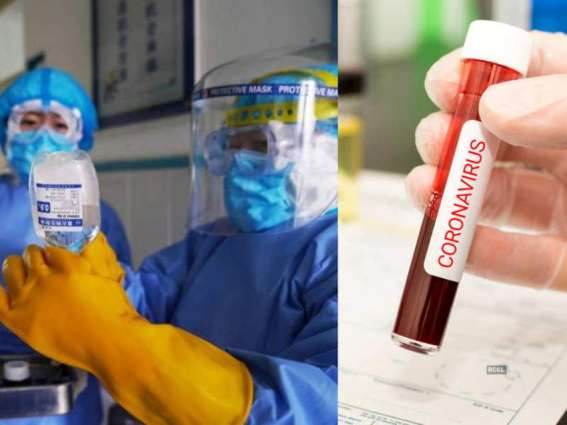There are reasons to believe that the Bacillus Calmette-Guerin (BCG), a nearly-century-old vaccine primarily used against tuberculosis, could help fight COVID-19, and that is why the potential effect of the vaccine should be assessed even if it is just a hypothetical assumption, Dr. Gonzalo Otazu, the assistant professor at New York Institute of Technology's department of biomedical sciences, told Sputnik
MOSCOW (Pakistan Point News / Sputnik - 15th April, 2020) There are reasons to believe that the Bacillus Calmette-Guerin (BCG), a nearly-century-old vaccine primarily used against tuberculosis, could help fight COVID-19, and that is why the potential effect of the vaccine should be assessed even if it is just a hypothetical assumption, Dr. Gonzalo Otazu, the assistant professor at New York Institute of Technology's department of biomedical sciences, told Sputnik.
In March, several scientists across the globe announced that they were looking into the possible correlation between the use of the BCG vaccine and the lower COVID-19 death rates. The pre-print study published by the Johns Hopkins Bloomberg school of Public Health on MedRxiv also showed that the COVID-19 mortality rate in BCG-using countries was 5.8 times lower than in non-BCG countries. Meanwhile, the World Health Organization warned that there was no evidence of BCG's effectiveness in treating the coronavirus, adding that two clinical trials into the matter were ongoing. The organization is set to reveal its results in due time.
"The data I analyzed found a correlation between the year of the start of the universal BCG vaccination policy in a country and a reduction of the number of deaths, which would suggest that the effect of BCG is long lasting... I found the differences across countries intriguing. In particular, the difference between Italy and Japan," Otazu, who leads the scientific research of his university into the matter, has said.
The assistant professor added that young people who were BCG-vaccinated recently were already "less susceptible to COVID-19 to start with."
According to Otazu, the hypothesis is worth testing, as there currently is no vaccine on the market and the pandemic is ongoing.
"It is not more or less credible. It is another hypothesis that is worth testing. Frankly, the situation is quite dire and the more hypotheses that are considered, the better," the scientist said.
Otazu stressed that without clinical trials, it would be hard to understand how the BCG would behave in a body against COVID-19. In particular, it would be difficult to analyze whether the vaccine blocks the virus from entering into the lungs and damaging them, or simply relieves the symptoms.
"We don't know how BCG might work. It could be a combination of those things. However, in order to know if it has any effect at all, we need to wait for results of well-controlled clinical trials," he said.
He added that the first results of clinical tests would be revealed either within the next few months or in a year.




